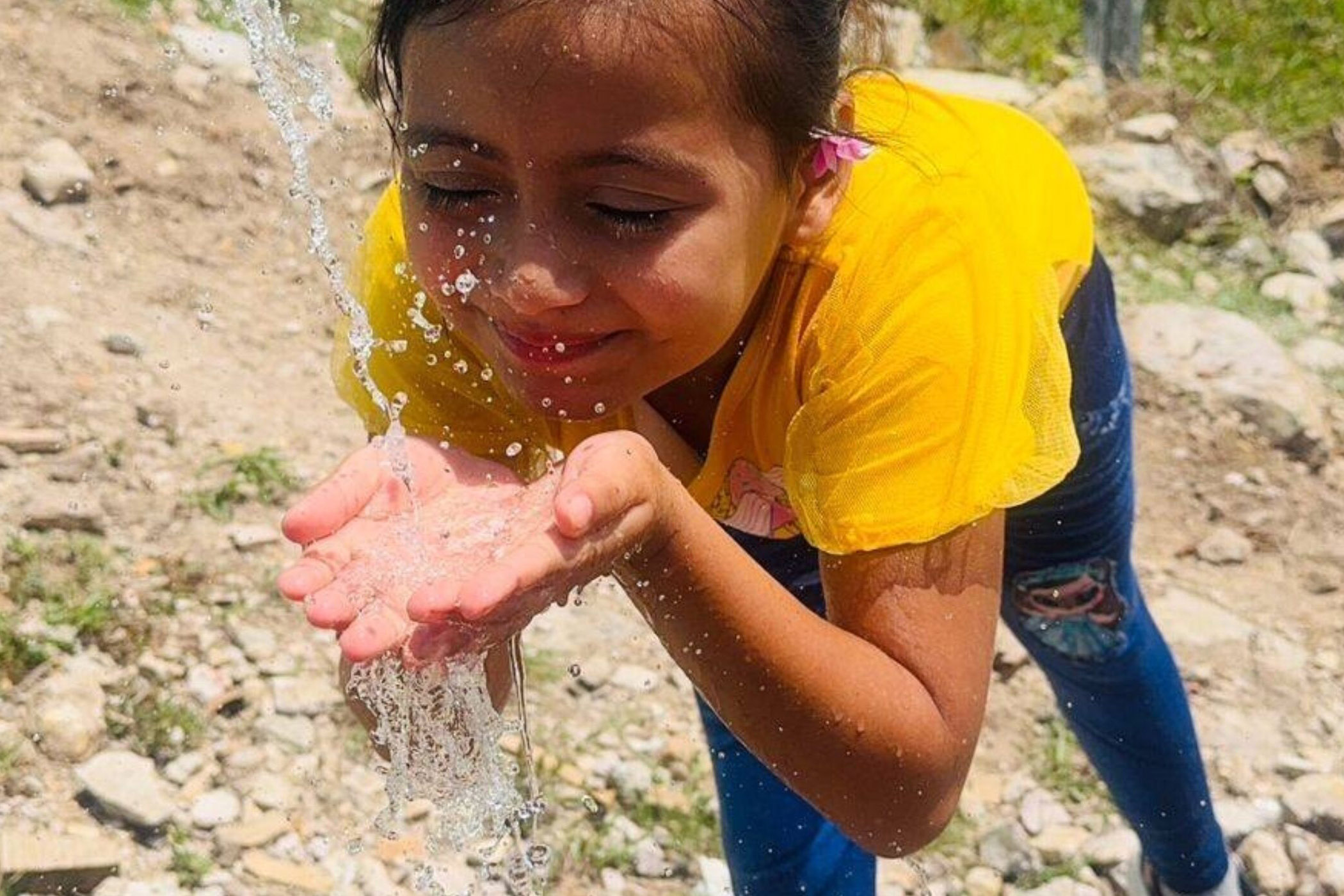Across the globe, the United Nations Office for Project Services (UNOPS) joined forces with the UN family and partners to tackle urgent challenges and uplift vulnerable communities in 2025. From rebuilding hope in Afghanistan to strengthening resilience in the Democratic Republic of Congo, Gaza, and Haiti, these stories showcase how collaboration can transform lives—even in the most difficult circumstances.
UNOPS
In Bezruky, Kharkiv region, the war forced the local gymnasium to close after sustaining damage, leaving students without a safe learning space. Through the EU-funded ‘School Repairs in Ukraine’ project, UNOPS renovated the school, converting its basement into a secure shelter and fully-equipped classrooms with ventilation, alarms, and restrooms. Corridors were transformed into an art gallery, making the space welcoming and inclusive. Students like Kamila, Mykhailo, and Kateryna now attend extracurricular activities safely, enjoying drawing, gymnastics, and learning. The initiative is part of a wider effort helping over 15,000 children across four regions return to in-person education.
UNOPS is completing 62 Indigenous and Quilombola schools across Brazil, blending traditional knowledge with modern education to empower youth, preserve cultural identity, and promote sustainable development.
From startup to regional leader, Southeast Asia Energy Transition Partnership unveils a five-year strategy to accelerate decarbonization, boost energy security, and ensure a just, inclusive, and sustainable low-carbon future.
From climate-fuelled disasters to destruction caused by conflict and other human-made crises, the focus of recovery is often fixed on the visible – collapsed buildings, flooded streets and shattered infrastructure. Yet, the deepest wounds are often the invisible losses – the emotional scars and the anguish of those who have been permanently displaced, carrying with them the memories of a home and a community they may never be able to return to. Decades of underground salt-mining beneath the coastal city of Maceió in Brazil led to land sinking and the flooding of entire neighbourhoods, forcing tens of thousands to abandon their homes. The tragedy unfolding in Maceió stands as the largest ongoing urban social-environmental disaster in Brazil. UNOPS is offering psychological support workshops in the Bebedouro neighbourhood – helping residents rebuild social connections and move forward together.
In drought-stricken Honduras, UNOPS and SANAA are transforming lives by building sustainable water systems that provide clean, reliable access to people in remote communities.
Earlier this year, Fatima, a resident of a remote village in Herat Province, received humanitarian cash assistance that provided much-needed relief. However, two local men seized the funds from 23 recipients, claiming they needed redistribution. Despite the risk of retaliation, Fatima contacted Awaaz Afghanistan, a nationwide platform for reporting issues related to humanitarian aid. The team acted on her complaint, leading to a field visit that confirmed the misuse of funds. Within ten days, each affected household received their full assistance. This case underscores the impact of speaking out and the responsiveness of humanitarian actors, facilitated by Awaaz Afghanistan, which has assisted nearly 600,000 calls and reached almost 4 million people.
United Nations Office for Project Services is recognized for using AI to enhance mine action and recovery efforts in Afghanistan, Colombia, and other post-conflict areas.
PROCARIBE+, a UNOPS-supported regional initiative, is uniting Caribbean nations, communities, and organizations to restore marine ecosystems, empower coastal livelihoods, and build a sustainable blue economy for future generations.
From Bangladesh to Colombia and Uganda, the Lives in Dignity Grant Facility empowers displaced and host communities through local, long-term solutions that restore dignity, strengthen resilience, and foster inclusion and peace.
Through a partnership with Denmark, UNOPS has helped restore essential services in war-impacted Mykolaiv, Ukraine—delivering waste trucks, water towers, firefighting equipment, and buses to support local resilience and daily life.
Within South Asia’s urban sprawl, a quiet transformation is taking place. From the slums of Dhaka and the riverbanks of Lahore to the schoolyards of Kathmandu, waste workers and young changemakers are reshaping their futures – with support from the Plastic Free Rivers and Seas for South Asia (PLEASE) project. PLEASE is the region’s largest initiative to combat marine plastic pollution and promote sustainable plastic use. Financed by the World Bank and implemented by the South Asia Co-operative Environment Programme, with UNOPS support, the project promotes practical solutions – public-private partnerships, innovation grants and inclusive education initiatives – to build a more circular and just economy.
With support from UNOPS and global partners, Uzbekistan is equipping hospitals with modern tools and training, ensuring safer, more effective care and building a stronger healthcare system for the future.
United Nations Office for Project Services, Ethiopia’s government, and the World Bank are rebuilding Tigray’s schools, healthcare, and food systems to support post-conflict recovery.
As Yemen marks its eleventh year of conflict, the humanitarian crisis worsens, but amidst the destruction, stories of resilience and hope still to shine through.














